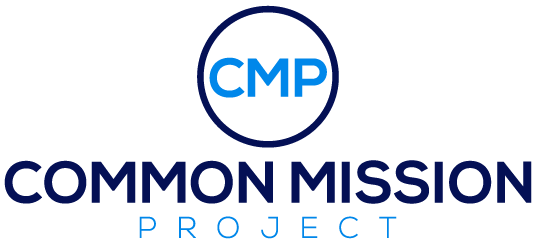The UW-Madison Computer Science Capstone course started up this Monday! It’s our fifth semester and fourth year holding the class. This semester we have a total of 11 Partners and 13 potential projects for the students. One of our new partners is the non-profit / governmental partner Common Mission Project (a.k.a. Hacking 4 Impact). The Common Mission Project partners with governmental agencies to have students tackle very tough problems, mostly centered around Climate & Sustainability. They’re a unique partner that is worth spotlighting this semester.
What is the Common Mission Project?
The Common Mission Project grew out of program called Hacking 4 Defense. Steve Blank, the academic father of Lean Start-up, partnered with the Department of Defense and various universities with the hopes that we could solve some of our country’s toughest problems using Lean Start-up principles. Hacking 4 Defense would find the problems and define the framework. Universities would provide faculty and students to work on the problems.

The program began to gain traction. To date, Hacking 4 Defense has solved 850 problems with 3,000 students at 60 universities. There have been a total of 54 start-ups formed out of the program as well!
The Common Mission Project uses the same framework to solve climate and sustainability problems. Which, in my opinion, are some of the most important problems facing us today. We need as many people involved in these solutions as possible!
This is a great way for students to learn key entrepreneurial skills while working on cross-functional teams of students.
How Does It Work?
Students receive a project brief that explains the problem they’re trying to solve. They also get key contacts to interview to better understand the problem. Lean Start-up (and any good, agile Discovery method for that matter) is very interview-heavy. Students will be talking to a lot of people throughout the semester in order to figure out how to best solve their problem.
To layout what they learn, we use something called the Mission Model Canvas. It’s another version of the Lean Canvas, which is a one-page business plan that businesses revise as you learn more about your business and the market you’re in. The Mission Model Canvas is better oriented towards solving problems in the non-profit and governmental space and it looks like this.

We use the build, measure, learn cycle made famous by The Lean Start-up by Eric Ries to pivot or persevere our way into a Minimum Viable Product (MVP). An MVP is a great start to a solution that will solve this problem.
I’ll be changing a few things about the class to accommodate some of the new topics too. I will be using the “flipped classroom” model for a few of my lectures this year. Students are assigned a video of the lecture ahead of class. Then, we use the classroom time to do activities that will help us set our projects up for success!
Our Common Mission Projects
So, who are our partners this semester? I’m very proud to be working with two great organizations:
- Institute of Food Technologists (IFT) – This project is called Data-Driven Food Traceability. The problem today is that first-mile producers (farmers and fishers) don’t have a great way to collect and share data digitally with their upstream trading partners that meets the requirements of the Food Traceability Rule. We mean to find a way to do this better!
- Orange Button Working Group (with the Department of Energy) – This is a project to streamline the standard for energy integration. The solar industry doesn’t yet have a great way to efficiently roll-out industry-wide data standards to ensure reliable and secure operations of solar energy systems. Solar is going to be a big part of our energy future. Our team of students will be finding a way to better share this data.
As you can see, data is at the top of everyone’s minds. How to get it and how to efficiently share it with the right people. I’m really looking forward to seeing what our students come up with this semester!
